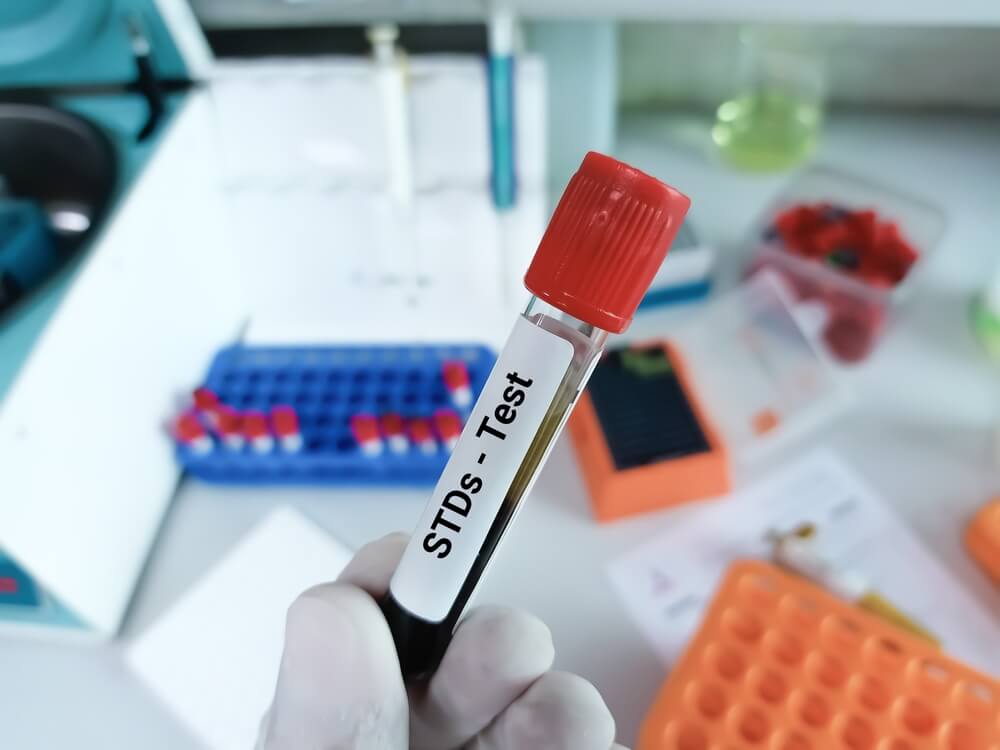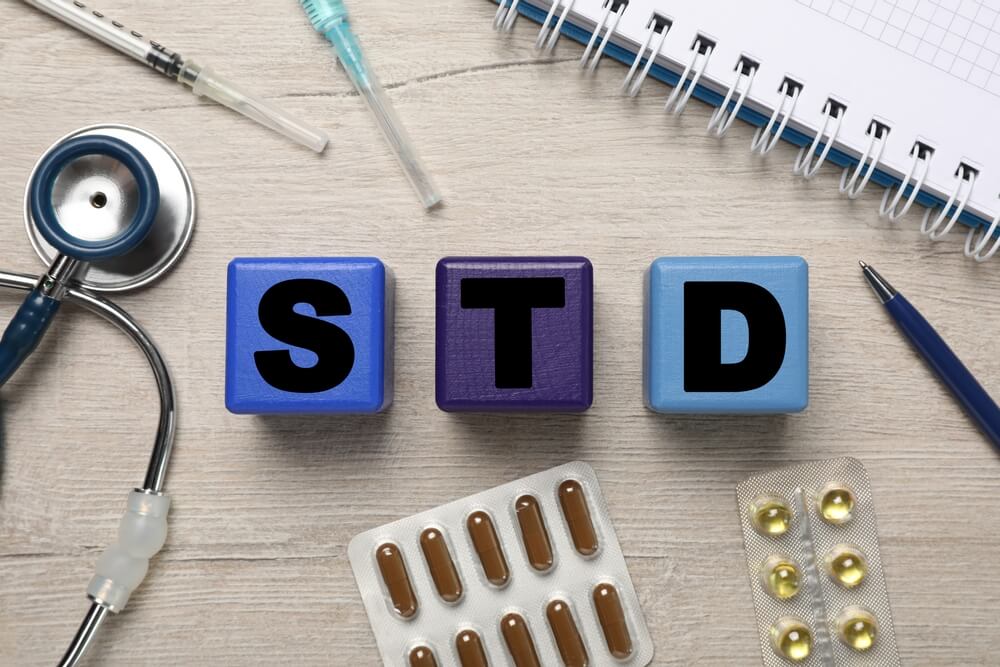Regular testing for STDs is crucial, especially if you are sexually active. But, you may be wondering, how long do STD tests take? Which sexually transmitted diseases can be discovered early? What are your steps after getting the STD test results? If you are looking for the answers to these questions, you are not alone. It’s true, finding out the STD test results can be terrifying. Fortunately, this article will help you understand the results of your tests and what you can do after your doctor’s appointment. By the end of this article, you will feel more confident with your STD test results.
As mentioned, regular testing is vital. Why? Because the early discovery of a sexually transmitted disease can help you recover from the illness, and it may even save your life. We always recommend booking STD testing in South Miami, Florida.
If all of this sounds good, read on.
What is an STD?
Before discussing STD results, let us define the term “STD.” An STD, short for sexually transmitted disease or a sexually transmitted infection, is a common illness occurring yearly in the United States. These diseases are transmitted from one person to the next via oral, vaginal, or anal sexual intercourse. Moreover, you can get an STD if you have intimate physical contact with an infected person or if you share sex toys with someone who has a sexually transmitted disease.
Although STDs typically display symptoms, this is not always the case. Hence, opting for STD test results may be the number one best way to determine whether you have a sexually transmitted disease or not. For optimal health, visit your healthcare professional regularly and get tested. If you are looking for the best professionals, contact OB-GYN Specialists of South Miami.
That said, STD test results are extremely important for your health and the well-being of your partner (or multiple partners). By getting tested and treated on time (before the disease has a chance to develop and spread), you will boost your chances of recovery and potentially avoid further health complications.
You can opt for STD test results for the following conditions:
- Hepatitis B
- Syphilis
- Gonorrhea
- Chlamydia
- HIV
- Trichomoniasis
Usually, doctors do not offer STD tests for herpes unless you ask for a test or if you have a known exposure. An STD test result will help you understand your health. Early treatment can help you speed up recovery and avoid health complications.

What are the Symptoms of an STD?
Some sexually transmitted diseases come with symptoms, while others do not. Because of this, people with STDs may go undiagnosed and untreated. To stay safe, we suggest considering STD results. Here are some signs and symptoms that you may have a sexually transmitted disease:
- You feel pain when urinating
- You notice an unusual discharge from the penis, vagina, or the anus
- You have a rash
- You notice skin growths or lumps around your anus or the genitals
- Your anus or genitals itch
- You notice warts around the anus or the genitals
- You have warts in the throat or mouth
- You notice unusual vaginal bleeding
Only an STD test result will help you and your doctor identify whether you have a disease. Make sure to consult with your healthcare professional as soon as you suspect you may have a sexually transmitted disease. More importantly, get tested if you:
- Are between the ages of 13 and 64
- Are sexually active
- Change sex partner
- Have multiple sex partners
- Are planning to get pregnant, or you are already pregnant
- Are you a sexually active bisexual or homosexual individual, or if you are a man who has sex with men
- Engage in sexual behavior that puts you at risk of diseases and infections
- Share injection drug equipment
- Have anal or oral sex
How Long Do I Wait for the STD Test Results?
You typically get the STD test results quickly. Testing is usually very fast, fool-proof, and pain-free. In fact, most tests are done within only a few minutes.
Your healthcare professional may be able to identify whether you have a disease right away, or you may need to wait a few days up to a few weeks for the STD test results.
Here are some of the most common sexually transmitted diseases and the approximate time frame of when to expect the STD test result:
- Syphilis: Your doctor may suggest a Venereal disease research laboratory test or a Rapid Plasma Reagin blood test. You may expect results in around seven to ten days.
- Chlamydia: You may undergo a urine test for STD, or your doctor will take a swab sample from the urethra or the cervix. You may expect results within two to three days.
- Gonorrhea: Although a urine test for an STD is a popular way to diagnose gonorrhea, your doctor may opt for a genital swab (as it is more accurate). The results are usually ready in up to three days.
- HIV: Your doctor will either test you by swabbing a sample from the inside of your cheek or via a blood test. You can also get rapid tests that give results in only 30 minutes. The results of the human immunodeficiency virus test may take up to a few weeks.
- HPV: The doctor will use a tool to brush or scrape your cervix to analyze cells gently. You can expect the STD test result within one to three weeks.
- Trichomoniasis: If you are a man, you will undergo a urine test for STD. The doctor may also take a swab sample from the penis or vagina. The results of these tests are ready in up to three days.
Once the screening is done, the healthcare professional will let you know when to expect the STD results. Overall, you may receive the results on the spot, or you will have to wait for up to a few weeks.

How Long Do STD Tests Take?
Usually, testing for sexually transmitted diseases is not a part of a regular gynecological exam or checkup. So, we always recommend asking your doctor for an STD test if you are experiencing symptoms of a disease or if you believe you may have been exposed to one.
So, how long do STD tests take? In most cases, STD tests are quick and easy. Depending on the symptoms you are experiencing, your doctor may suggest doing one or a few of the following tests:
- Urine sample: When you do a urine test for an STD, your doctor will ask you to pee in a cup.
- Cheek swab: This test is typically done for HIV. The doctor will rub a soft swab on the inside of your cheek.
- Blood test: Your doctor will draw blood from your arm or prick your finger.
- Testing sores: The APP, doctor, or a nurse will examine your genitals for rashes, sores, unusual discharge, or warts.
- Discharge swab: The professional will collect cell samples from the vagina, cervix, penis, anus, urethra, or throat via a soft swab. Discharge may be collected as well.
- Testing sores: The APP, doctor, or nurse will take fluid samples from blisters or sores with a swab.
Where Can I Get Tested?
You can get tested at the doctor’s office, a local health department, or a reliable community health clinic. As mentioned, you may need to ask your provider for a test during the gynecological exam or the regular checkup.
Book an Appointment Today
If you are looking for a trusted clinic with the best professionals, we are here to help. Schedule an appointment with us today and optimize your health.


